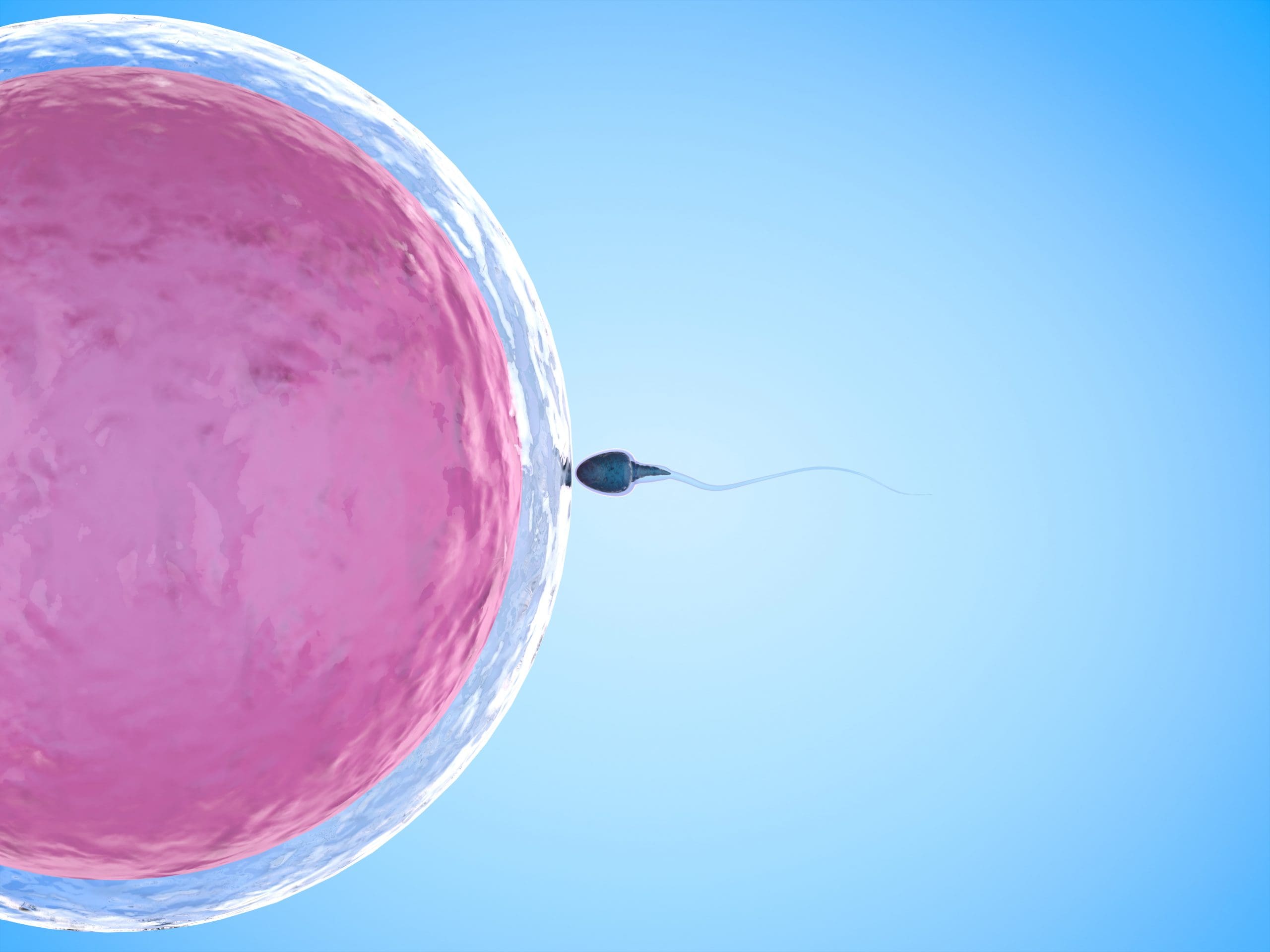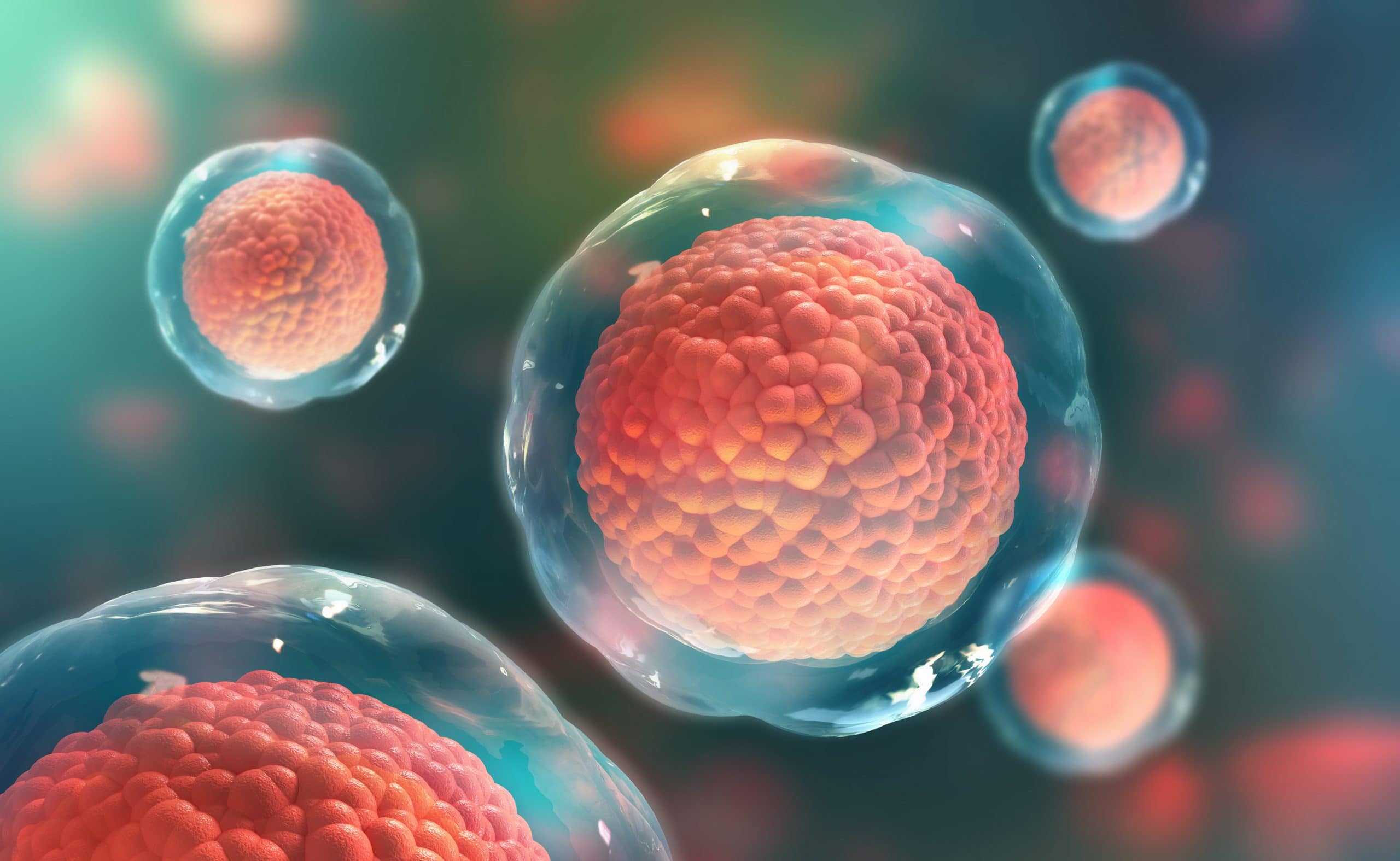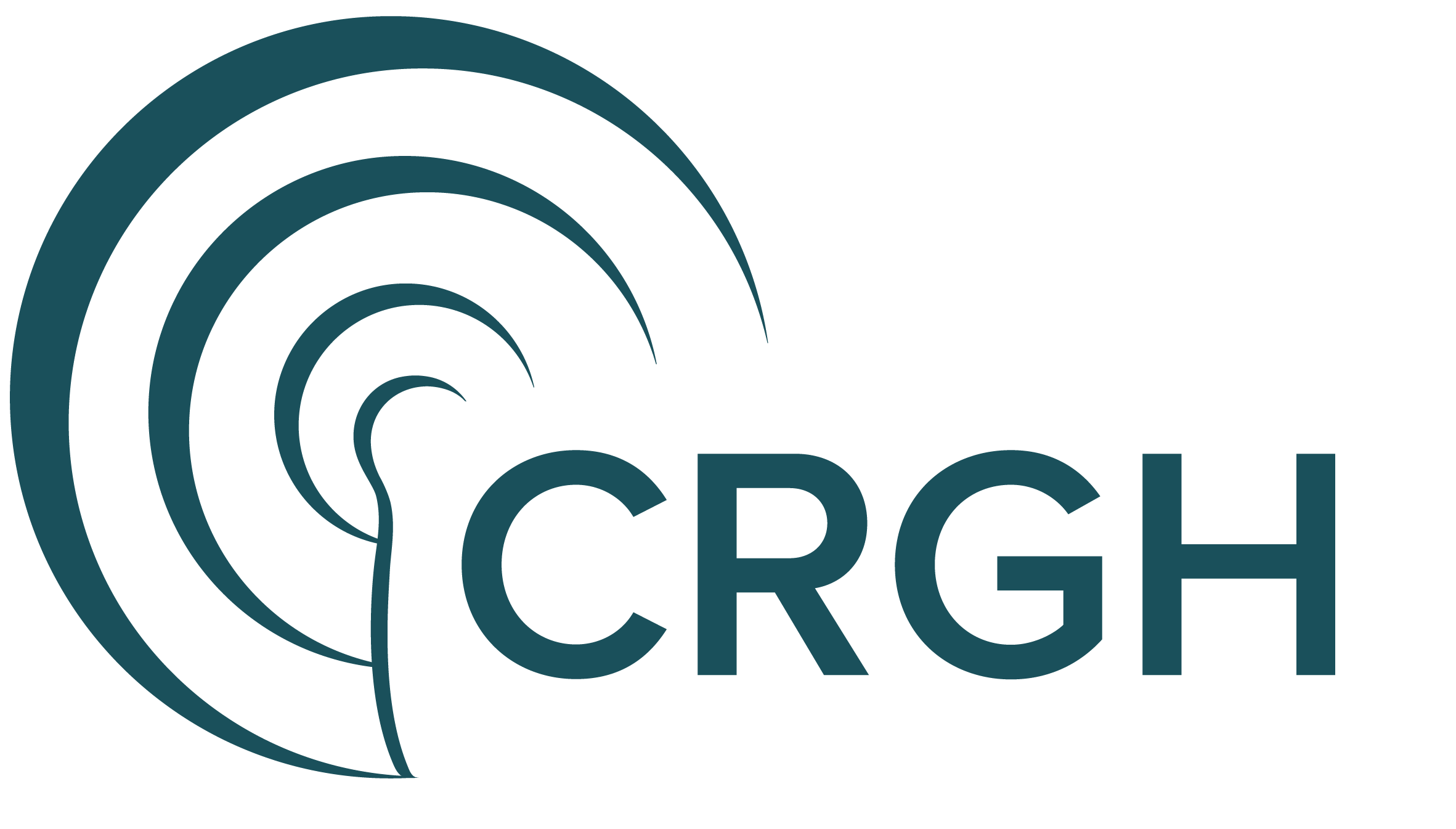In Vitro Fertilisation (IVF)
IVF is an advanced fertility treatment that allows more patients than ever before to create a family of their own. At our state-of-the-art clinics, we can guide you from the very beginning of your fertility journey through to advice following the post-treatment pregnancy test.

What is IVF treatment?
In vitro fertilisation, or IVF, is a safe and trusted fertility treatment that can help people overcome a wide range of challenges that may otherwise make it difficult to conceive naturally, whether they have struggled with their own fertility or cannot conceive a baby naturally.
By combining the eggs and sperm in our laboratory, we can create the optimal environment for fertilisation to occur. This can be helpful for patients using donated eggs or sperm, for those with known fertility issues such as low sperm count, or for those making use of previously-frozen eggs or sperm.
The Centre for Reproductive and Genetic Health is the leading IVF clinic in London, with decades of experience, a reputation for clinical excellence and outstanding IVF success rates. There are lots of variables when it comes to IVF, and our expert consultants and embryologists will tailor every aspect to ensure you have the best possible chance of success.

How does IVF work?
Once the egg and sperm have combined and created an embryo, it is nurtured in our laboratory to reach the perfect level of maturity, usually about five or six days.
During this stage, it’s also possible for the embryo to undergo state-of-the-art genetic testing. Healthy embryos can then be re-implanted for the remaining nine months of development or frozen for use at a later date.
The Process of IVF Treatment
Consultation
At CRGH, every treatment journey begins with an initial consultation. This is comprised of an hour-long video appointment, wherein you and your consultant will discuss your medical history and goals. The consultant will also tell you more about the treatment types on offer and answer your questions.
Blood tests and investigations
Some blood tests and investigations will be required to ensure IVF is a suitable treatment for you. These typically include an Ovarian Reserve Test and a 3D saline infusion sonohysterography to understand the quantity of the antral follicles (small fluid filled sacs within the ovaries) and assess the health of the womb. Similarly, a semen analysis will be conducted to confirm the quality of the sperm being used. There are lots of additional tests and investigations which our doctors can also recommend should it be appropriate, for example for those who have had unsuccessful treatment in the past.
Follow up consultation
Once your test results are back, you will meet with your consultant to discuss the results. Based on these results, your consultant will also confirm a bespoke treatment plan during this meeting.
Agree your treatment plan
Before moving forward with any medication or treatment, you will need to agree to the treatment plan and estimated costs which our Patient Liaison Team will provide you with.
Nurse consultation
This meeting with one of our specialised fertility nurses marks the start of treatment itself. Your nurse will explain the different steps of IVF treatment, how and when to take your medication and answer any other questions you might have.
Stimulation
Most patients will undergo a course of medication and monitoring which will help ensure the best possible results. During this period, you will have regular scans and blood tests to ensure your body is responding correctly, and your medication will be changed accordingly to ensure the best possible results.
Egg collection
Having monitored your blood and scan results closely throughout stimulation, your consultant will decide when is the optimal time to collect your eggs. Egg collection usually happens vaginally, under deep sedation in our theatre. Eggs can also be collected abdominally in certain circumstances. Once collected, healthy eggs are taken to our laboratory to be combined with sperm and fertilised.
Embryo development
Once fertilised, embryos typically develop for five or six days prior to transfer or freezing. During this time our embryologists closely monitor the way in which the embryo develops, giving an indication of the quality of the embryo. Our embryologists are in constant contact with you during this time to update you on your embryos’ development.
Embryo transfer
Your embryologist will help you to decide which embryo is the best to transfer for the highest possible chance of a healthy and successful pregnancy. Using a small, flexible tube, the chosen embryo will be implanted into the womb to continue its nine months of development as a completely natural pregnancy.
Pregnancy test
14 days after your embryo transfer, you will take an at-home pregnancy test, which will confirm the results of your treatment. Whatever the outcome, our team of consultants, nurses and fertility counsellors will be on hand to support you in your next steps.
Arrange an Initial Consultation
As mentioned above, your IVF treatment journey will begin with an initial consultation. This is an hour-long video appointment with a consultant of your choice to discuss your goals for treatment. Our consultants are experts at understanding your previous medical and fertility history; having taken a detailed medical history, your consultant will explain what treatment options are available. You will also have the opportunity to ask any questions you may have about your fertility journey.
Book a consultation with CRGH
Our Outstanding IVF Success Rates
Fresh IVF Live Birth Rates, Per Embryo Transferred 2021
Live Birth Rate per embryo transferred in under 35s
2022
49.0%
Live Birth Rate per embryo transferred all ages average
2022
32.1%
Frequently Asked Questions
The process of IVF
How long does IVF treatment take?
A cycle of IVF usually takes around six weeks, although this is dependent on each individual and often governed by menstrual cycles. Our intention is always to work for the best possible results, rather than the quickest cycle.
Is IVF suitable for everyone?
IVF is suitable for people with a wide range of fertility issues, and is one of the most commonly used and successful treatments. You can access IVF treatment as a heterosexual couple, LGBTQ+ couple or as a single person.
What are the risks of IVF?
IVF is generally a very safe treatment. However, there are some risks which you should take into account which we discuss in more detail below.
Your consultant will discuss these risks, and how we reduce them, during your consultation. You can also learn more about the risks associated with all fertility treatments available in the UK on the HFEA website.
Can you use donated sperm or eggs for IVF?
Yes, you can use donated eggs or sperm (sometimes referred to as ‘gametes’) in IVF treatment. Our team can help in finding donated eggs or sperm for use in IVF.
Can you pause during the IVF process?
Yes; one of the nice things about IVF is you are able to “pause” at certain points in the process. This can be helpful for those who have other commitments. Speak to your consultant for more information on how to schedule your treatment.
How much does IVF cost?
Treatment costs vary depending on your individual needs, particularly when it comes to medication. You can find an example of the costs on our Pricing page, but once you have discussed a treatment plan with your consultant, our Patient Liaison team will be able to provide you with more accurate costs based on your requirements.
How to prepare for IVF
How should I prepare for IVF treatment?
As part of your treatment plan, your consultant will prescribe medication that will help prepare your body for IVF. Our nurses will also help explain the lifestyle changes which could help maximise your chances of success.
Is there anything I should avoid prior to IVF?
It’s important to keep your body healthy and relaxed prior to any treatment type. Avoiding stress, smoking and excess alcohol prior to your treatment can help prepare your body for IVF. You might also start taking folic acid.
What should I do after IVF?
After IVF, you should continue to avoid excess stress. A healthy diet and regular light exercise will help to keep your body strong after IVF while you wait for your pregnancy test results. Your consultant may also prescribe medication to continue to take in the early stages of your pregnancy.
Your consultant will discuss these risks, and how we avoid them, during your consultation. You can also learn more about the risks associated with all fertility treatment available in the UK on the HFEA website.
If you would like to see sample costs for treatment, please visit our Pricing page.
For any other questions you may have about starting or continuing your fertility journey with CRGH, please book a consultation today, or learn more about our other services below.
